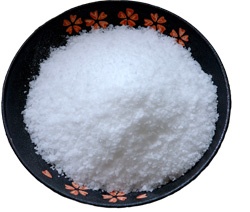Sulfur is recognised as the third most abundant mineral within the body and around half of it can be found within the bones, muscles and skin. It plays an integral role in hundreds of physiological processes and sulfur is required for proteins to maintain their shape, and their bonds also determine the biological activity of proteins.
Our hair and nails are filled with a tough protein known as keratin and this is high in sulfur compared to connective tissue and cartilage which contain proteins with flexible sulfur bonds and give structure flexibility.
Sulfur plays a vital role in the elasticity of skin and without it, the body’s tissues can lose their elasticity and this leads to sagging and wrinkling skin. Other problems include stiff muscles and painful joints. All of these age-related problems can be improved by taking sulfur regularly.
What is Sulfur’s Biological Purpose?
Sulfur is required within sufficient amounts within the body to ensure that enzymes function properly. If you don’t have enough sulfur in the body, then metabolic processes can be impacted upon as they rely upon biologically active enzymes. Sulfur plays an important role in the following processes:
- The body’s electron transport system can benefit as part of the iron/sulfur proteins in mitochondria and this can be good energy factories for the cells.
- Thiamine (Vitamin B1) and Biotin (B7) conversion, essential for converting carbohydrates into energy
- Synthesizes important metabolic intermediates like glutathione that produces one of the most important antioxidants produced in the body – known as SAMe or S-adenosylmethionine, taurine and N-acetylcysteine (NAC).
- Sulfur promotes proper insulin function. It does this because the insulin molecule consists of two amino acid chains, connected by sulfur bridges. Without which the insulin can’t perform its biological activity.
- Sulfur plays a role in detoxification
- Supports glucose metabolism. When sufficient amounts of sulfur is available, then this acts as a decoy to glucose. This diverts and reduces the sulfur rather than glycating and causing damage. This also has a good effect on reducing chronic inflammation as sugar (glucose) can be highly inflammatory and cause havoc within the body.
Sulfur deficiency is thought to be very common and one of the reasons for this, is demineralization of the soils. It is this factor which causes health problems in relation to obesity, heart disease, chronic fatigue and Alzheimer’s. Studies have also shown that Sulfur can help with skin conditions, arthritis and shingles.
Where is Sulfur found?
Sulfur is often found in abundance in cruciferous vegetables such as broccoli, cabbage, cauliflower, brussels sprouts and bok choy. Other good sources include asparagus, celery and fennel. Onions, garlic, leeks and shallots are all sources of allium vegetables. Another good way to get more sulfur into your diet is to use a supplement with dimethyl sulfoxide (DMSO) or methylsulfonylmethane (MSM). The MSM has many benefits that can reduce inflammation within the body. The MSM which is a metabolite of DMSO is widely used within the treatment of pain, in particular arthritic pain. OptiMSM is patented sulfur with the most studies to support its health benefits.
 Magnesium Oil Ultra with OptiMSM – This contains Genuine Zechstein™ magnesium chloride from the Ancient Zechstein sea. It contains OptiMSM that allows for rapid cell absorption into the body.
Magnesium Oil Ultra with OptiMSM – This contains Genuine Zechstein™ magnesium chloride from the Ancient Zechstein sea. It contains OptiMSM that allows for rapid cell absorption into the body.
 SerraPlus+ – This contains 80,000IU of Serrapeptase, plus MSM and trace minerals. SerraPlus can help to support a wide range of health problems.
SerraPlus+ – This contains 80,000IU of Serrapeptase, plus MSM and trace minerals. SerraPlus can help to support a wide range of health problems.
Why You Should Take Sulfur For Good Health | www.naturallyhealthynews.com


 Magnesium Oil Ultra with OptiMSM –
Magnesium Oil Ultra with OptiMSM –  SerraPlus+
SerraPlus+ 


